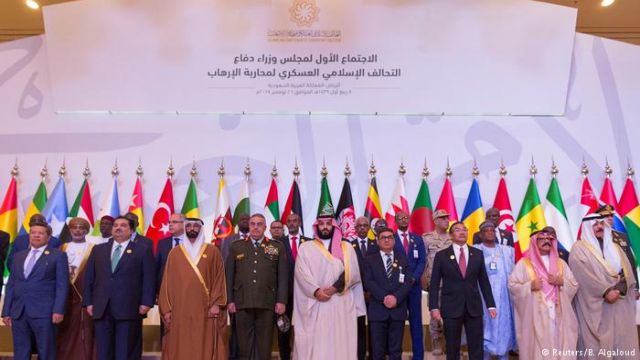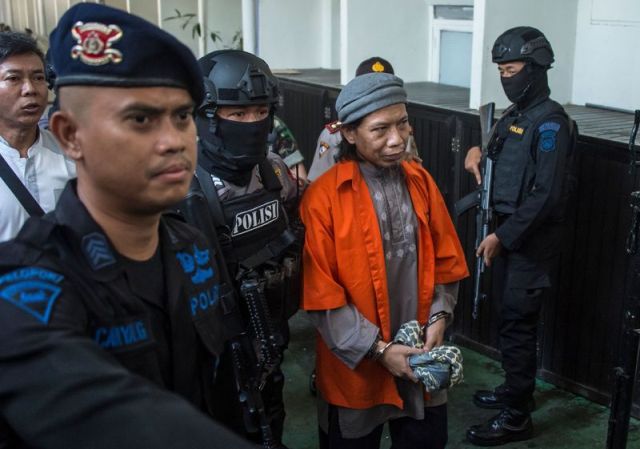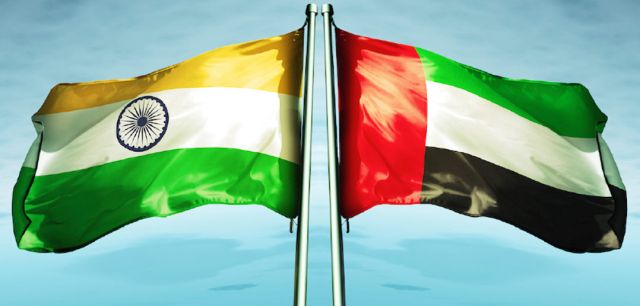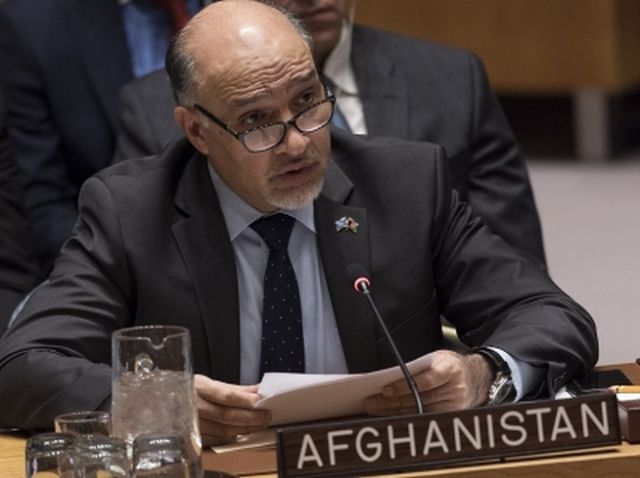
by admin | May 25, 2021 | Muslim World, Opinions
 By Dr. Saud Mohammed Al Sati,
By Dr. Saud Mohammed Al Sati,
On September 23, the Kingdom of Saudi Arabia will celebrate its 88th National Day. It marks the day the Kingdom was unified under the founding King Abdulaziz bin Abdulrahman Al Saud in 1932. On this occasion, we also celebrate the progress our great nation has made over the last nine decades to become a modern state and a major player on the international arena.
Yet another milestone event in our nation’s historic journey under the leadership of the Custodian of the Two Holy Mosques King Salman bin Abdulaziz and the Crown Prince Prince Mohammad bin Salman, is April 25, 2016 – the day Vision 2030 was announced. The Vision expresses our long-term goals and reflects our country’s strengths and capabilities. Our leadership’s vision is of a strong, thriving, and stable Saudi Arabia that provides opportunity for all. The Vision emphasises scaling up economic diversification, raising the skill level of the Saudi young men and women and wisely utilizing the Kingdom’s abundant natural resources.
The Saudi government is exerting continuous efforts at diversifying its economy to achieve the goals set under Vision 2030. The ambitious $500 billion mega city project, NEOM, is underway. The 26,500 square km zone will focus on diverse industries including energy and water, biotechnology, food, advanced manufacturing and entertainment. Additionally, the project of Al-Qiddiya, an entertainment, sports and cultural destination, a first of its kind, has been launched earlier this year near Riyadh. These diverse cities will be significant in creating new employment opportunities and accelerating the growth of the Saudi Arabian economy.
Our eyes are set on the future. Our New Solar Energy Plan 2030 is the world’s largest project of its type. By 2019, the Kingdom’s first two solar generation projects with 3GW and 4.2GW of solar capacity will be commissioned and by 2030, more than 150 GW solar power will be generated. The Plan will help create up to 100,000 direct and indirect jobs in the Kingdom. Additionally, it will increase the GDP by $12 billion and save up to $40 billion annually. Furthermore, Saudi Arabia has been strengthening its oil industry, one of the strongest drivers of its growth and has maintained its position as a key enabler in the global oil economy. In April 2018, Saudi Aramco and a consortium of three Indian oil companies signed a MoU to jointly develop and build an integrated refinery and petrochemical complex in Ratnagiri, West Coast of India. The project is estimated to cost around $ 44 billion.
The Kingdom has also initiated a program of restructuring at all levels of government institutions. Digital services have been expanded to reduce delays and cut tedious bureaucracy and ensure more efficiency, transparency, and accountability. Significant steps have been taken to improve the business and investment climate to promote industrial development, particularly small and medium-size enterprises (SMEs). According to a recent World Bank report, Saudi Arabia instituted the largest number of business reforms in the Middle East and North Africa region. In June 2019, the Kingdom of Saudi Arabia will be included in the MSCI Emerging Markets Index, the MSCI ACWI Index and other applicable regional and international indexes. Multiple regulatory and operational improvements are opening the domestic market to international investors.
Social development is as crucial as economic development. Led by Vision 2030 and the associated National Transformation Program, Saudi Arabia has surpassed a majority of the 17 United Nations Sustainable Development Goals (SDGs). It was made possible by integrating SDGs into specific and detailed plans and programs developed by the government in partnership with the private sector and civil society organizations.
To promote full participation of women, the Kingdom has launched several initiatives including a national observatory to monitor women’s participation in economic and social development, including a digital portal for female job seekers. The royal decree that has allowed women in the Kingdom to drive has further enabled their participation in the progressive economy. Over 50% of Saudi university graduates are women. Women have achieved remarkable increase in the Custodian of the Two Holy Mosques Program for Scholarships Abroad in multiple disciplines. Today, women scholarship students are enrolled at universities in 57 countries, accounting for nearly 25% of our students abroad, nearly 150,000 students.
The country’s infrastructure is also being developed and upgraded, including expansion of the railway system and introduction of a new light rail mass transit project with metro lines and a community bus network in the Kingdom’s major cities of Riyadh, Jeddah, Makkah and Medinah.
With Vision 2030 serving as a blueprint, the Kingdom is working on the strategic objective of welcoming 30 million pilgrims each year to perform Haj and Umrah. The third phase of expansion of Grand Mosque launched by King Salman is making good progress. Expansion of the building itself covers 1.47 million square metres, including 78 new gates. The various new infrastructure and transportation projects are beautifully shaping up. In Medina, the new Prince Mohammad bin Abdulaziz Airport was inaugurated by King Salman in 2015. The new King Abdul Aziz International Airport in Jeddah is expected to be fully operational in a few months. The Haramain Railroad, which has been going under testing for the last four months, will be fully operational later this year. It will shorten the time of the journey between the two holy cities of Makkah and Medina to a couple of hours with the capacity of 60 million passenger per year.
As we focus on the development of our country and bringing about prosperity for our people, we continue to face the challenges in our region and continue our responsible role as a peace-loving nation. Political and economic stability in the Middle East and around the world is one of Saudi Arabi”s greatest priorities. Peace, stability, non-interference, good neighbourliness and prosperity of the region will continue to be our guiding principles. My country will continue its leading role in countering extremism and terrorism and their supporters.
The Kingdom of Saudi Arabia has maintained its pioneering role in spreading goodwill and compassion beyond its borders by being at the forefront of the international community in terms of share of gross domestic product (GDP) earmarked for humanitarian aid. The King Salman Centre for Humanitarian Aid and Relief, since its was established in 2015, has provided humanitarian and development aid worth more than $ 1.9 billion to more than 37 countries in four continents, implementing more than 450 projects in areas of food security, housing and shelter, preventative health care and education.
India is one of our most important strategic partners. In all aspects, our ties have grown and expanded. In the spheres of cultural ties and people to people connection, earlier this year India was the ‘Guest of Honour’ at the Kingdom’s National Heritage Festival and Saudi Arabia is hosting over 3.2 million Indian nationals, forming an important pillar of our relationship. Our energy cooperation and joint investment is set to grow further and our security cooperation is also getting stronger. The partnership between our two friendly countries will certainly continue to grow further in the coming years.
(The author is Ambassador of the Kingdom of Saudi Arabia to India. The views expressed are personal)
—IANS

by admin | May 25, 2021 | News

David Cameron
Kolkata : Former British Prime Minister David Cameron on Thursday said terrorism should not be seen as a battle between the Christian countries of the West and the Islamic countries in the Middle East. It is all about identifying and wiping out a small section that believes in extremism.
Criticizing US President Donald Trump’s view on terrorism, he said it is more of an intellectual battle against those who believe in the “perverted view” of the Islamic religion.
“When at times I listen to President Trump, it seems he thinks of terrorism like a clash of civilizations between the Christian West and the religion of Islam, which I think is completely wrong,” said Cameron, also the former Conservative Party chief.
“What’s happening now-a-days is a civil war in the Islamic states between a vast majority willing to practice their religion peacefully and a very small minority that have taken up a radicalized and perverted view of the religion and turned it into a kind of belief.
“What we have to do is recognize those who are involved in this,” he pointed out while addressing the Annual General Meeting of the Indian Chamber of Commerce here.
Cameron said the terrorist problems have surfaced not just in the Middle East but also in Afghanistan, Pakistan, India and Britain in recent times, which shows “we are involved in a big intellectual fight”.
He said that in order to discourage the spread of radicalism among people, the success of multi ethnic nations like India and Britain should be celebrated.
“We should try to celebrate the multi cultural, multi religious, multi ethnic countries like India and Britain. We should also help those countries in wiping out the perverted practice of radicalism in the name of religion,” he said.
Talking about the spread of Islamic State in Iraq and Syria, he said such forces need to be fought with fire to eliminate the extremists.
“Iraq is a state that has been finding support for the Islamic State that actively sends terrorists to other countries. Sometimes people are trained in Iraq and sent to the European countries while at other times they are just radicalized through social media.
“But a large section of their people are willing to break free from the grasp of this extremist group. We have to find a strategy to wipe out the extremist forces and work with the locals,” Cameron said.
He also said that the world will be a safer place if there is peace between Israel and Palestine but it will not ensure the end of terrorism.
—IANS

by admin | May 25, 2021 | Muslim World
 Jakarta : An Indonesian court on Friday sentenced a hardline Muslim cleric to death for his role in a wave of terror attacks that were carried out in 2016 and 2017 killing more than a dozen people.
Jakarta : An Indonesian court on Friday sentenced a hardline Muslim cleric to death for his role in a wave of terror attacks that were carried out in 2016 and 2017 killing more than a dozen people.
The prosecution had sought the death penalty for Oman Rochman, who they accused of planning a January 2016 attack — killing four civilians and injuring more than 20 — near a commercial centre in Jakarta, Efe news reported.
The court also found Rochman guilty of inciting other attacks, including the bombing of a bus station in Jakarta in 2017, in which three policemen and two suicide attackers had died, and in a church on Borneo island in 2016 where a two-year-old had died.
The court said that Rochman indoctrinated people by disseminating propaganda literature online as well as through audio sermons.
Rochman is considered one of the founders of the radical group Jamaah Ansharut Daulah (JAD), formed in 2015 by several radical groups linked to the Islamic State terror group.
In May, JAD members attacked several cities in the country leaving 30 dead and 50 wounded.
Rochman who is already serving sentences for several convictions for terrorist activities was guiding the group’s activities from jail, according to the prosecution.
In January 2017, the US Department of State had classified JAD as a global terrorist organisation.
Indonesia, a Muslim-majority country, has been the victim of several terror attacks, including one in 2002 on the tourist island of Bali, which killed 202.
—IANS

by admin | May 25, 2021 | Opinions
 By Ayalur K. Balakrishnan,
By Ayalur K. Balakrishnan,
Saudi Arabia has faced more than 60 attacks by terror groups Al-Qaeda and Daesh, about half of them in the last two years alone. Daesh, also known in the Islamic State of Iraq and Syria (ISIS), called for the extermination of the Saudi royal family in three formal pronouncements issued between 2014 and 2016. India is the third-biggest target of terror attacks after Iraq and Afghanistan. Of the 11,072 terror attacks worldwide in 2016, as many as 927 took place in India.
Saudi Arabia and India have a long history of shared prosperity and pain, unifying them in happiness and grief. Having faced the brunt of terrorism, both have for long been treading the path of cooperation to fight the menace by joining forces in cyber and maritime security and against transnational crimes, human and drug trafficking.
The two countries have been partners in peace since 2006, as the year witnessed the Custodian of the Two Holy Mosques King Abdullah bin Abdulaziz Al Saud and Indian Prime Minister Manmohan Singh signing the landmark Delhi Declaration and agreeing to enhance regional and global cooperation to combat and eradicate terrorism. The two governments decided to closely and actively cooperate to fight other transnational crimes such as money laundering, drugs and arms smuggling in a sustained and comprehensive manner. Their continuous efforts for the adoption of the Comprehensive Convention on International Terrorism is an example of their unwavering will to fight the threat in all its forms.
The Riyadh Declaration of 2010 ushered in a new era of kinship between the countries, wherein they re-emphasised terrorism as a global epidemic engulfing all countries alike, irrespective of race, colour and beliefs. They also welcomed the signing of the Extradition Treaty and the Agreement for Transfer of Sentenced Persons according to which Indian prisoners imprisoned in Saudi Arabia or vice-versa shall be transferred to their country for serving the remaining part of their sentences. Also, their social rehabilitation shall be facilitated.
Another important milestone in strengthening the strategic partnership between the two countries was the MoU on Defence Cooperation signed during the visit of the Custodian of The Two Holy Mosques King Salman bin Abdulaziz Al Saud to India in February 2014 as the then Crown Prince, Deputy Premier and Defence Minister of the kingdom of Saudi Arabia. Prime Minister Narendra Modi’s visit to Saudi Arabia in 2016 that resulted in enhanced cooperation in counter-terrorism operations, intelligence sharing, anti-money laundering, prevention of use of cyber space for terrorism, radicalisation and for disturbing social harmony is yet another landmark event in this regard.
India has time and again lauded efforts by the kingdom in fighting terrorism such as the royal decree on counter-terrorism issued by King Abdullah. The kingdom is also a member of the 68-nation-strong Global Coalition Against Daesh and one of the founding countries of the Islamic Military Alliance against ISIS in Syria and Iraq.
“We will not allow them (terrorists) to distort our peaceful religion. Today we are sending a strong message that we are working together to fight terrorism,” Crown Prince Muhammad bin Salman, who is also the kingdom’s Deputy Prime Minister and Minister of Defence, told assembled defence ministers of the Islamic Military Alliance in his keynote address in Riyadh. Crown Prince Mohammed has vowed terrorists will be pursued until they are “wiped off the face of the earth”, sentiments that Prime Minister Modi has also shared.
The United Nations Counter-Terrorism Centre (UNCCT) was also envisioned by the Custodian of the Two Holy Mosques King Abdullah bin Abdulaziz Al Saud and launched in 2011 with an initial contribution of $10 million by Saudi Arabia. The kingdom later pledged another $100 million to enhance the capabilities of UNCCT. The kingdom also co-chairs the Counter ISIL Finance Group along with the United States and Italy. In fact, the Saudi government had put in place majority of its new financial controls and banking regulations in as early as 2003, aimed at stopping those who financially support terrorism and extremism within Saudi borders and beyond. The Saudi Arabian Monetary Agency (SAMA) issued instructions to all Saudi financial institutions to implement the 40 recommendations of the Financial Action Task Force (FATF) of the G-8 countries regarding money laundering and the recommendations regarding terror financing.
Together as committed global partners, Saudi Arabia and India are fighting a common enemy — global terrorism. Together they are working to establish peace that shall not only belong to the holy month of Ramadan but to all months and years to come.
(Ayalur K. Balakrishnan is a senior journalist who has worked with the Jeddah-based English daily Saudi Gazette for more than two decades. The views expressed are personal. He can be contacted at balan47@gmail.com)
—IANS

by admin | May 25, 2021 | Muslim World

Afghanistan’s Permanent Representative Mahmoud Saikal
By Arul Louis,
United Nations : Afghanistan has welcomed the rising international pressure on the counter-terrorism front against Pakistan including its recent listing on a terrorism financing watch list and the United States withholding aid.
“We hope that this trend continues and the response to these measures is positive in the interest of peace and security in Afghanistan and the region,” Afghanistan’s Permanent Representative Mahmoud Saikal told the Security Council on Thursday.
“Of late, we have seen new measures at the international level to shift the calculus and promote genuine and productive counter-terrorism cooperation,” he said.
He diplomatically did not name Pakistan but the reference was clear.
“Recent decisions including the reduction of financial aid to the concerned State, and inclusion in the watch list of the Financial Action Task Force (FATF) represent a renewed attempt to encourage genuine action on the crucially important goal of defeating terrorism effectively,” Saikal said.
Last month Washington persuaded the members of FATF to reinstate Pakistan on its “grey list” of nations that are monitored for not acting adequately to stop terrorist financing and money laundering.
In January US President Donald Trump ordered withholding military aid and payments estimated at $1.2 billion to Islamabad because of its support for terrorist organisations.
Trump had accused it of giving safe havens to the terrorists that “we hunt in Afghanistan” and practising “lies and deceit.”
Saikal denounced the attacks in January by “Taliban’s Haqqani network” on the Intercontinental Hotel in Kabul that killed 18, including 14 foreigners, and on Save the Children NGO in Jalalabad in which 27 people died, and the detonation of an explosive-laden ambulance near a major hospital in the heart of Kabul killing at least 105 civilians.
“The sheer level of savagery in these despicable and heinous attacks was startling,” he said.
Despite all this, Saikal said President Ashraf Ghani made the “unprecedented” offer of direct talks to the Taliban without preconditions.
“Should our call receive a positive response, they will be granted the chance to become normal citizens, allowed to compete peacefully in politics through democratic procedures, be relieved from UNSC sanctions measures, besides enjoying the benefits of other positive measures,” he said. “In turn, they have to give up on their long-standing path of violence.”
(Arul Louis can be reached at arul.l@ians.in)
—IANS





